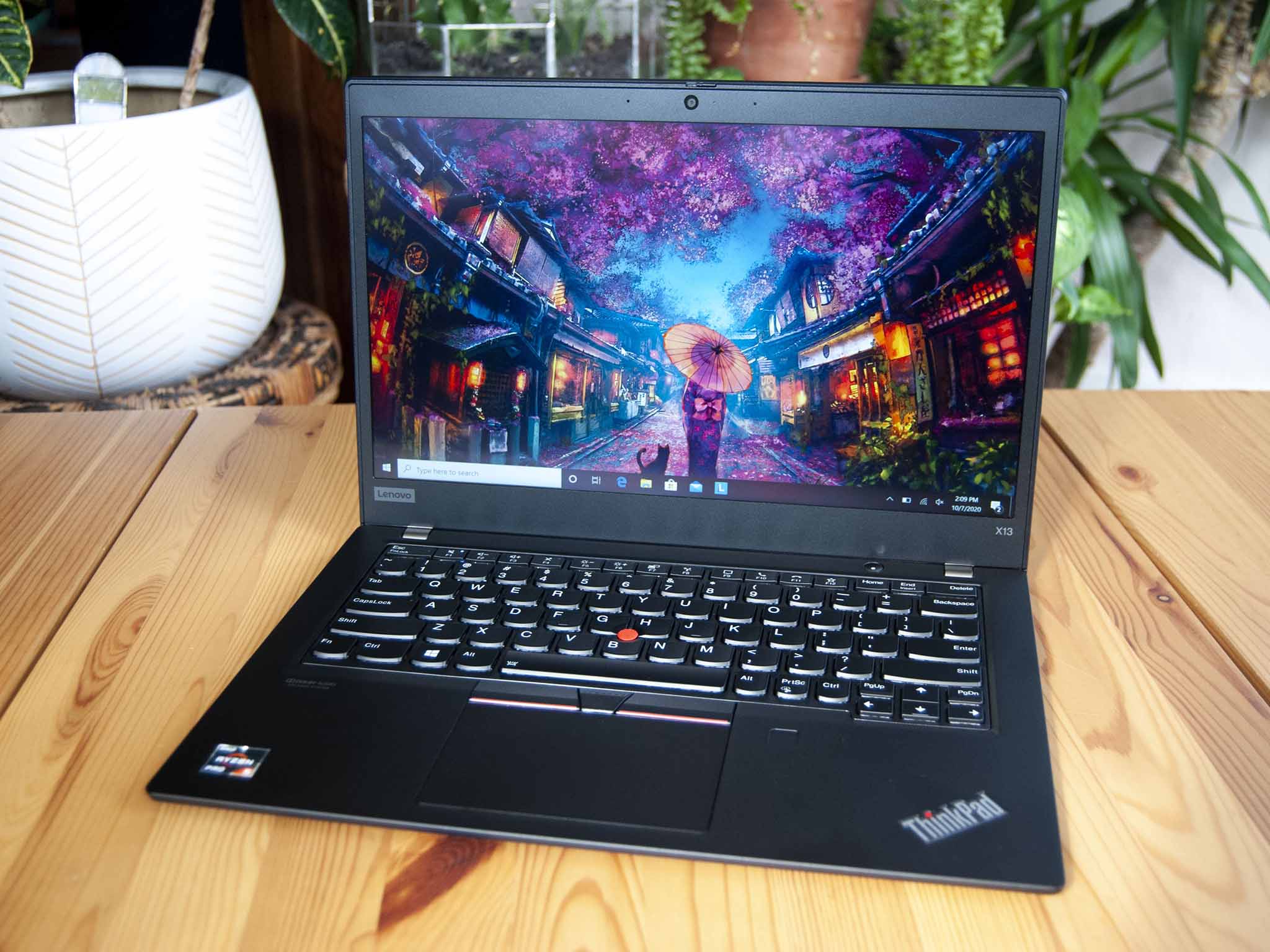
The Lenovo ThinkPad X lineup — not to be confused with the high-end ThinkPad X1 lineup that includes the X1 Carbon, X1 Extreme, and X1 Yoga — is meant to appeal to those who want a thin and light business laptop with extra security features and coveted ThinkPad durability. X-series laptops, which include standard and Yoga versions of the ThinkPad X390, ThinkPad X395, and ThinkPad X13 (which I'm reviewing here), are a lot closer to Lenovo's T-series devices than the expensive X1 line. The X13 starts at an affordable price, it's sized to travel, and it's packing hardware cut out for productivity work. I've been using a ThinkPad X13 with AMD Ryzen 4000 PRO CPU for about a week to see what it's all about and, ultimately, whether or not it's worth a buy among all the best AMD Ryzen laptops out there.
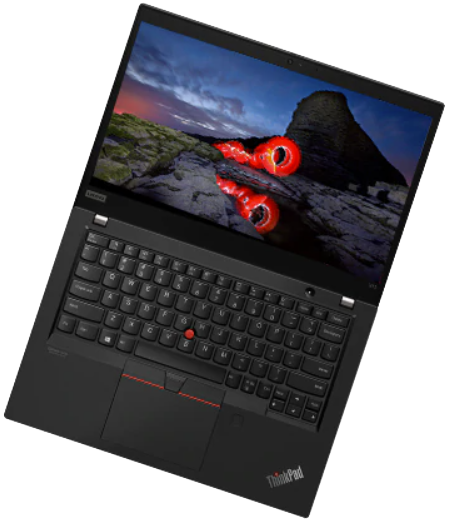
Bottom line: The first-gen ThinkPad X13 doesn't really offer anything new, but it does bring outstanding performance from AMD Ryzen 4000 PRO CPUs. If you value performance, typing comfort, and durability over all else, this should make for a tempting 13-inch laptop that starts at well less than $1,000.
For
- Starts at a low price
- AMD Ryzen 4000 PRO brings the power
- Excellent keyboard
- Lots of ports
- Wi-Fi 6 and optional LTE connectivity
Against
- Poor audio
- Stale design
- No Thunderbolt 3
- Battery life could be better
ThinkPad X13 at a glance
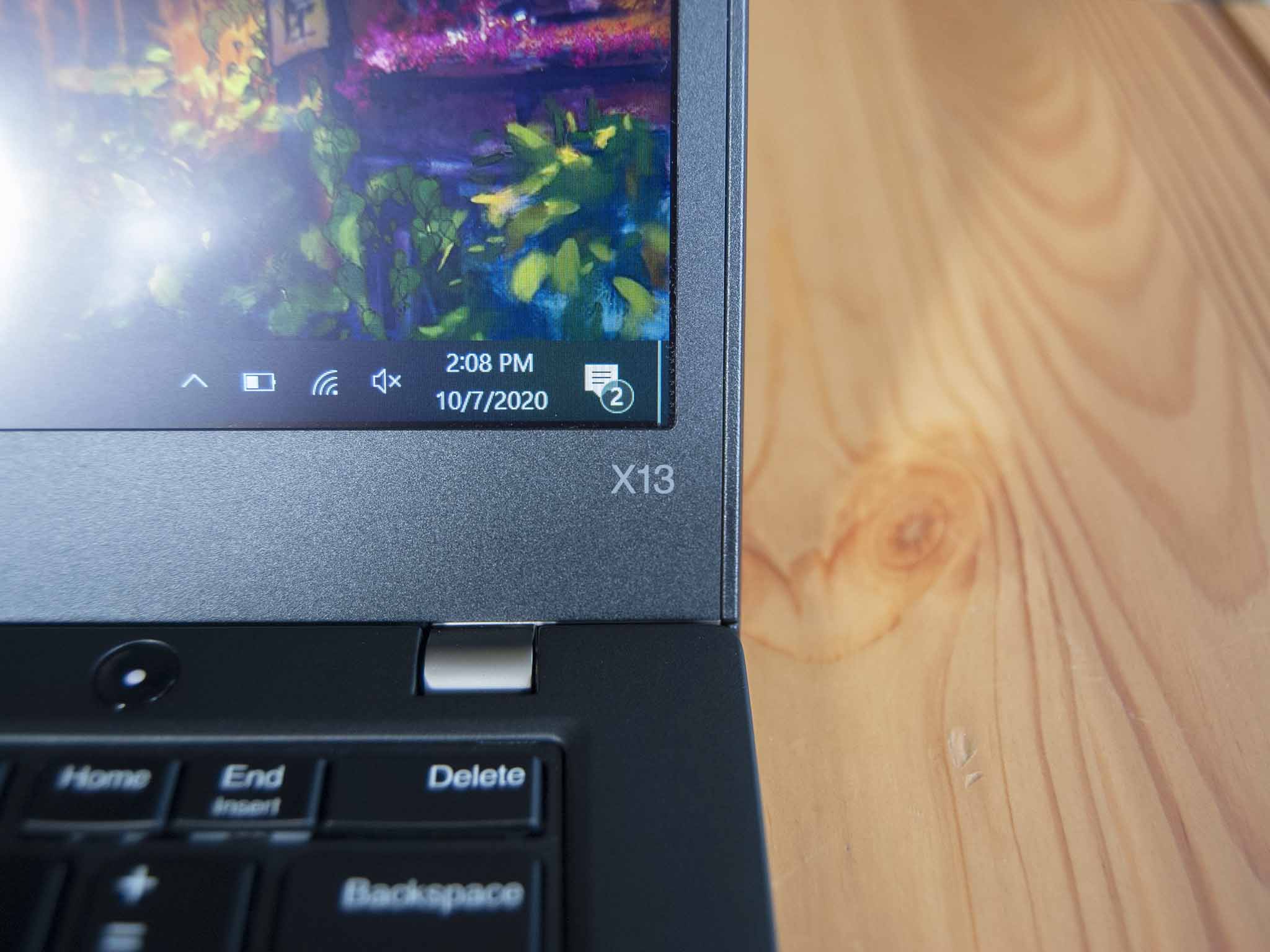
Lenovo supplied Windows Central with a review unit of the first-gen ThinkPad X13. It's packing an AMD Ryzen 5 PRO 4650U processor (CPU), 8GB of DDR4 RAM that is soldered to the board, a 256GB M.2 PCIe NVMe solid-state drive (SSD) that can be upgraded after purchase, and integrated AMD Radeon Vega 6 graphics. The 13.3-inch display is touch-enabled. Altogether, this exact model costs about $975 after applying Lenovo's instant coupon savings. Otherwise, it retails for about $1,624.
Baseline models go as low as a Ryzen 3 PRO 4450U CPU, 8GB of RAM, 128GB SSD, and 13.3-inch non-touch HD display, starting at around $684. This is best reserved for bulk enterprise buys; if you're buying for yourself, at least go with the FHD resolution.
Going all out, with a Ryzen 7 PRO 4750U CPU, 32GB of RAM, 1TB SSD, and 13.3-inch FHD display with Privacy Guard costs closer to about $1,774 after a big Lenovo discount. Otherwise, it's regularly priced at about $2,956.
Here's a look at the exact specs found in the model I was sent for review.
| Category | Spec |
|---|---|
| OS | Windows 10 Pro |
| Processor | AMD Ryzen 5 PRO 4650USix cores, 12 threadsUp to 4.0GHz |
| RAM | 8GB DDR4-3200MHzSoldered |
| Graphics | AMD Radeon Vega 6Integrated |
| Storage | 256GB M.2 PCIe NVMe SSD |
| Display | 13.3 inches1920x1080 (FHD)IPS, anti-glareTouch |
| Ports | Two USB-C 3.2 (Gen 2)Two USB-A 3.2 (Gen 1)HDMI 2.0Ethernet extension connectormicroSD card readerNano-SIM (optional)3.5mm audioSmart Card reader (optional) |
| Audio | Dual 1W speakersDolby Audio |
| Wireless | Intel Wi-Fi 6 AX200802.11axBluetooth 5.14G LTE-A (optional) |
| Camera | Front-facing 720pThinkShutter privacy |
| Security | Fingerprint reader |
| Battery | 48Wh |
| Dimensions | 12.28 x 8.55 x 0.67 inches(311.9mm x 217.2mm x 16.9mm) |
| Weight | From 2.84 pounds (1.28kg) |
Nothing much new
ThinkPad X13 design and features
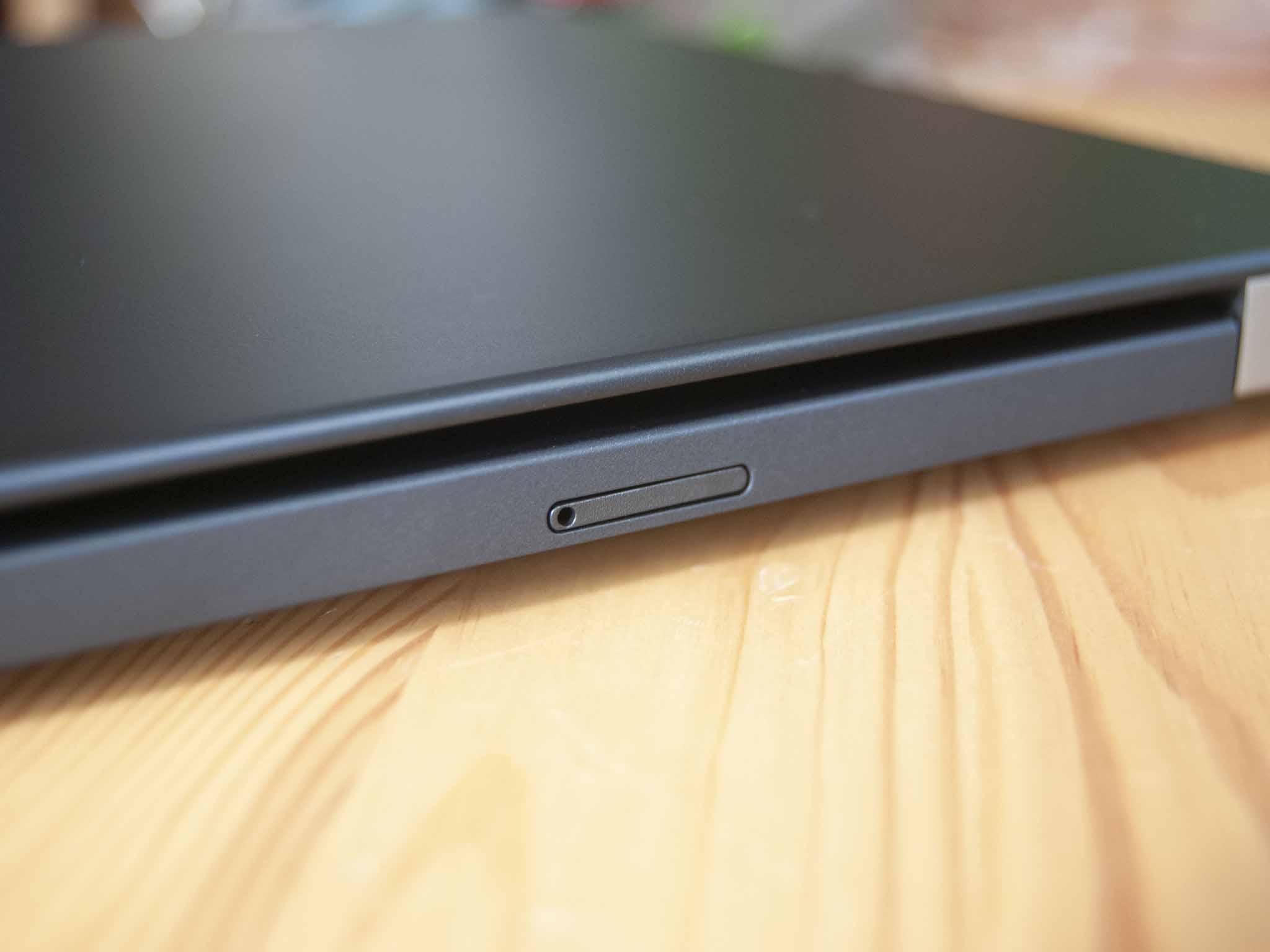
The first-gen ThinkPad X13 is unmistakably a Lenovo business laptop, with its magnesium-aluminum chassis and black finish. It's been put through myriad durability tests to prove it can withstand a life of travel, yet it's relatively thin and light for a 13-inch device. It measures 0.67-inches thin and weighs in at 2.84 pounds (1.28kg) for a touch-display model. It's easy to carry under an arm, clip into a briefcase, or slide into a backpack.
Get the Windows Central Newsletter
All the latest news, reviews, and guides for Windows and Xbox diehards.
The X13 nails what I would consider the ThinkPad design essentials, but when I heard "first-generation," I was expecting a bit more flair or at least something just a bit out of the ordinary. This is ultimately just a 13-inch ThinkPad that could easily be mistaken for another if not for the internal performance hardware. It's almost heresy to suggest Lenovo messes with the ThinkPad recipe, but mixing things up a bit to set the X13 apart from its siblings would have me a whole lot more excited for its arrival.
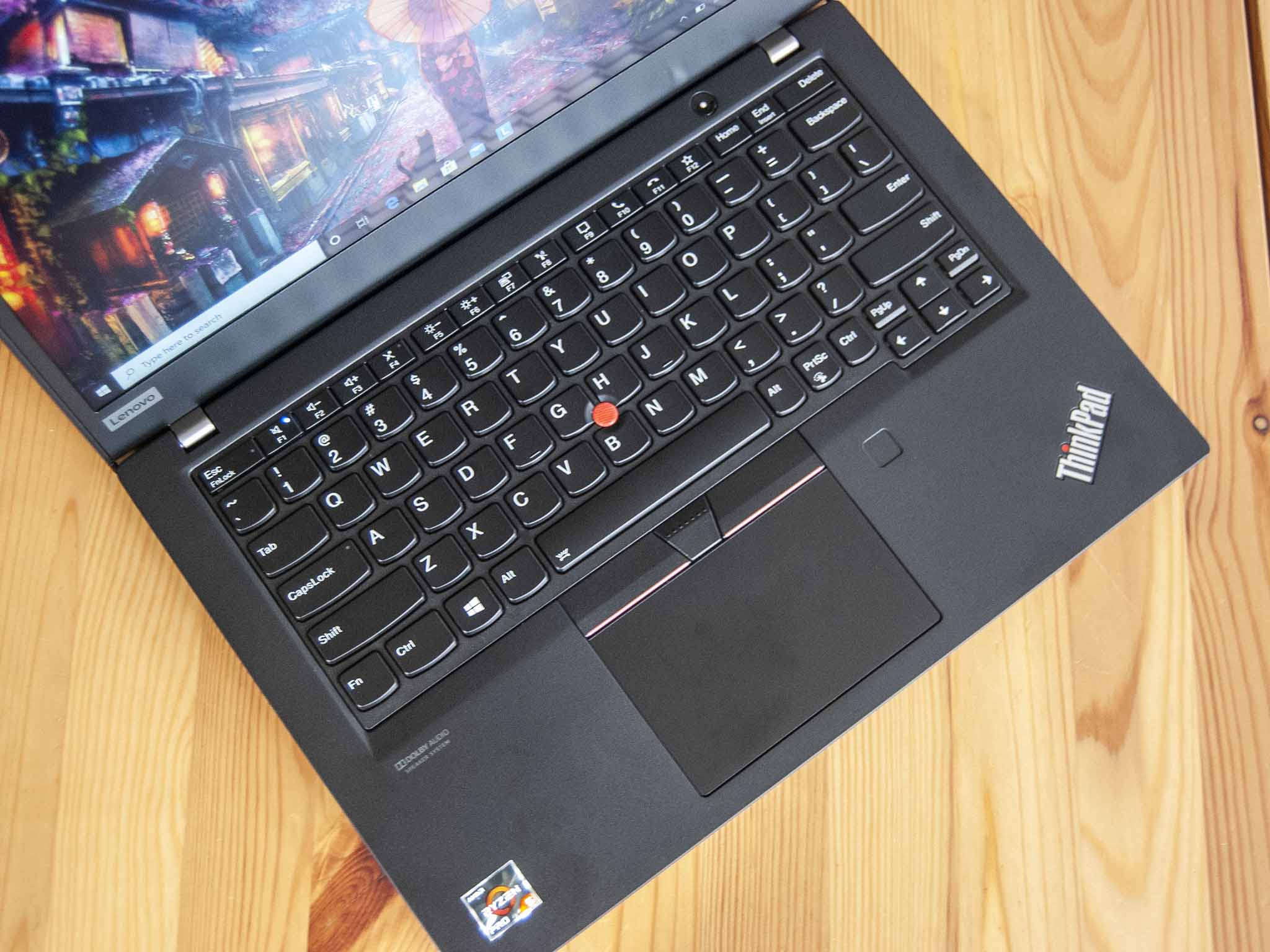
One thing Lenovo doesn't want to do is mess with the keyboard. As is the case with pretty much every ThinkPad, the cupped keys, ample travel, and perfect spacing make a return here. If you're someone who types all day every day, this laptop isn't going to let you down. It would be nice to see the board stretch closer to the laptop's edges — a design trend I love — but I assume in Lenovo's case that deep key travel doesn't play well with the ample port selection along the edges.
I don't often use it, but the TrackPoint system is included above the Precision touchpad. It has the usual three physical buttons and a red pointing nub. Another trend I love in modern laptops is the blown-up size of touchpads, and I think the X13 could benefit. Depth is fine for a 13-inch device (especially when room is saved for the physical TrackPoint buttons), but width could be expanded to better accommodate those of us who ignore the red pointing nub.
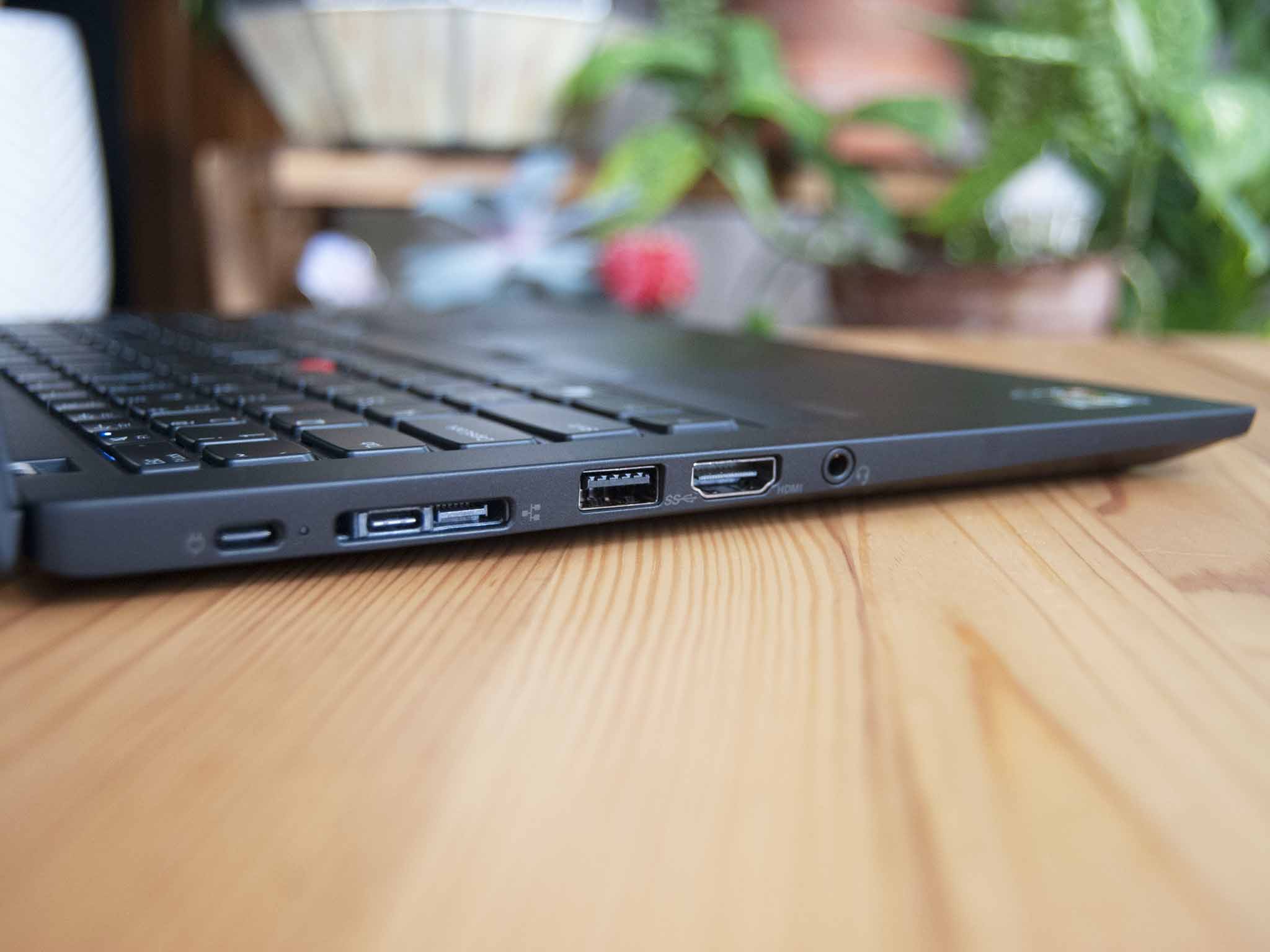
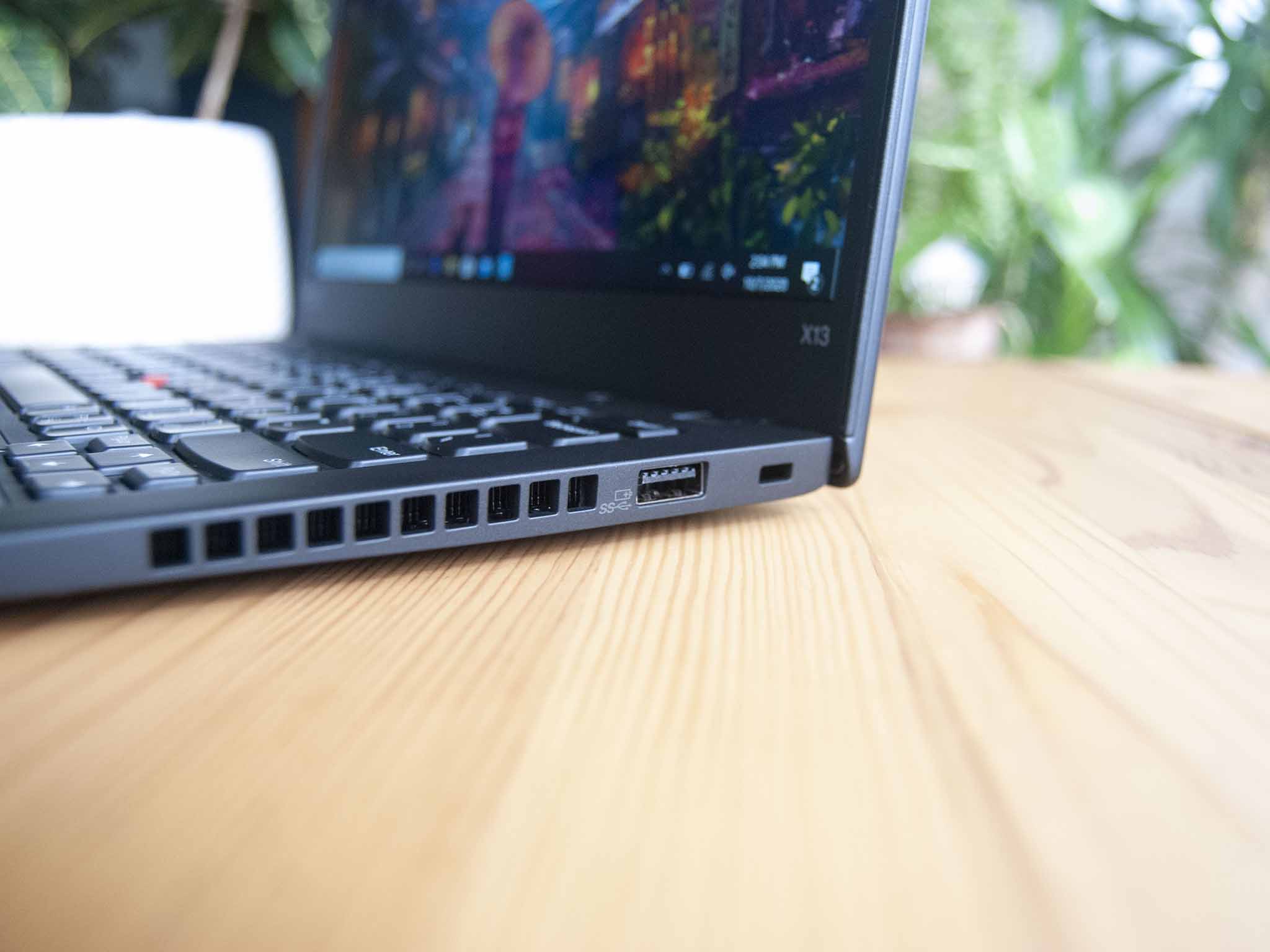
Despite the compact build, the X13 retains generous port selection. It includes two USB-C 3.1 (Gen 2) with one doubling as a charging port, two USB-A 3.2, HDMI 2.0, a microSD card reader and Nano-SIM tray, 3.5mm audio, Ethernet extension (which requires a separate adapter for full RJ45), and an optional Smart Card reader for those enterprise buys.
It'd be great to have full Thunderbolt 3 here, but that privilege is reserved for the Intel-based X13 models. At least you can still connect something like the CalDigit USB-C Pro Dock to create a bonafide workstation. Have a look at more of the best laptop docking stations if it's not quite what you're looking for.
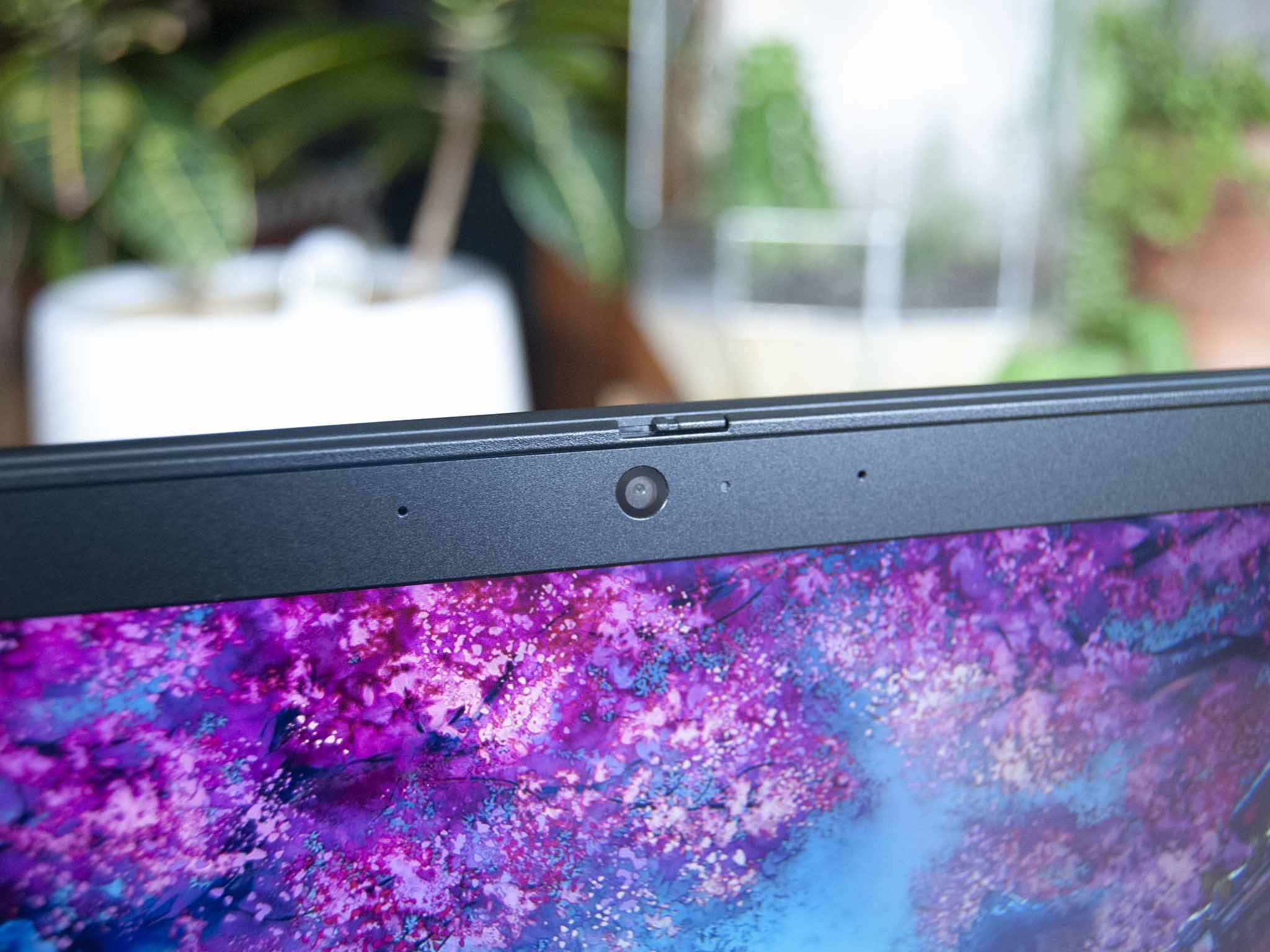
Audio from the dual 1W down-firing speakers is nothing to get excited about. You'll be able to hear meetings and videos fine, but don't expect to set the laptop down and blast music. At high volume, there is some distortion, and it overall sounds a bit hollow. It's about what you'd expect from a business laptop at this price.
As for the camera, it comes standard with a front-facing 720p option, and you can add, with certain display options, an IR camera for facial recognition. The standard camera is not bad at all for video conferencing. For some extra privacy, a webcam shutter is included. It's a feature I love and one I wish to see on more laptops. An optional fingerprint reader is built into the right palm rest, and it works as it should with snappy logins.
Rounding out the features is Intel AX200 Wi-Fi 6 connectivity for fast wireless speeds. The laptop is also available with optional 4G LTE connectivity for those who need to stay in touch when Wi-Fi isn't available.
It gets the job done
ThinkPad X13 display
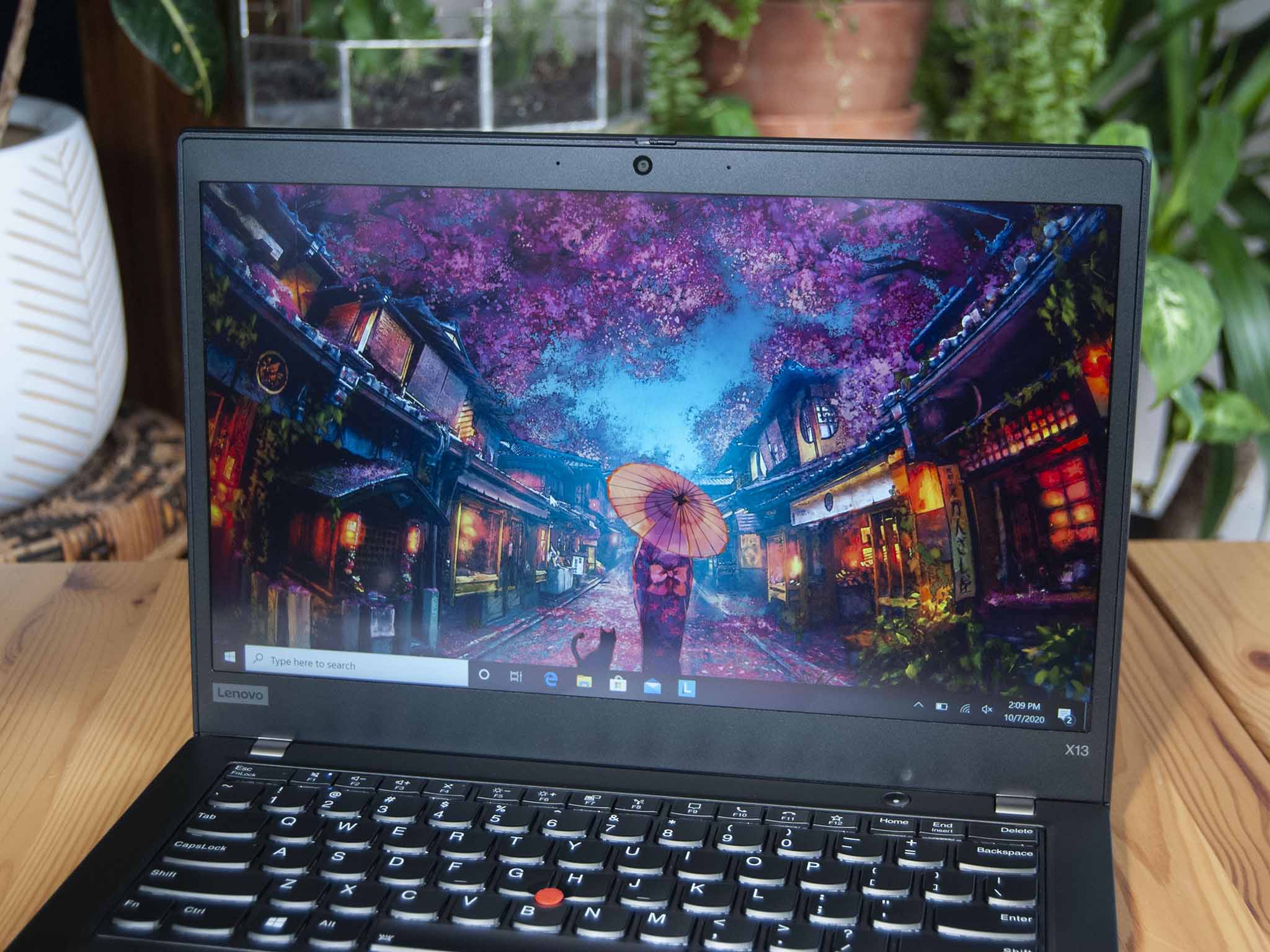
You can choose from four different 13.3-inch display options when configuring your ThinkPad X13, starting with a low-end 720p (HD) option with 250 nits brightness, TN panel with narrow viewing angle, and low color reproduction. Moving up to 1080p (FHD) and IPS panel, you can get a non-touch or touch option (both with 300 nits) or a non-touch option with Privacy Guard and 500 nits brightness. They all have an anti-glare coating to help with working in well-lit spaces.
I received the FHD touch display to test. Using a Datacolor SpyderX Pro colorimeter, I measured 97% sRGB, 75% AdobeRGB, and 75% DCI-P3 color reproduction. These are decent numbers for a laptop in this price range, and it's going to fare well for productivity and business-oriented tasks. It also hit 324 nits brightness, going as low as 3.4 nits. I just wish there was an option to bump up to even 1440p.
The bezel around the display is rather chunky, and I'd love to see an aspect ratio switch for some of these laptops. Even moving to 16:10 and cutting out some of the chin would make a huge difference.
The real selling point
ThinkPad X13 performance and battery
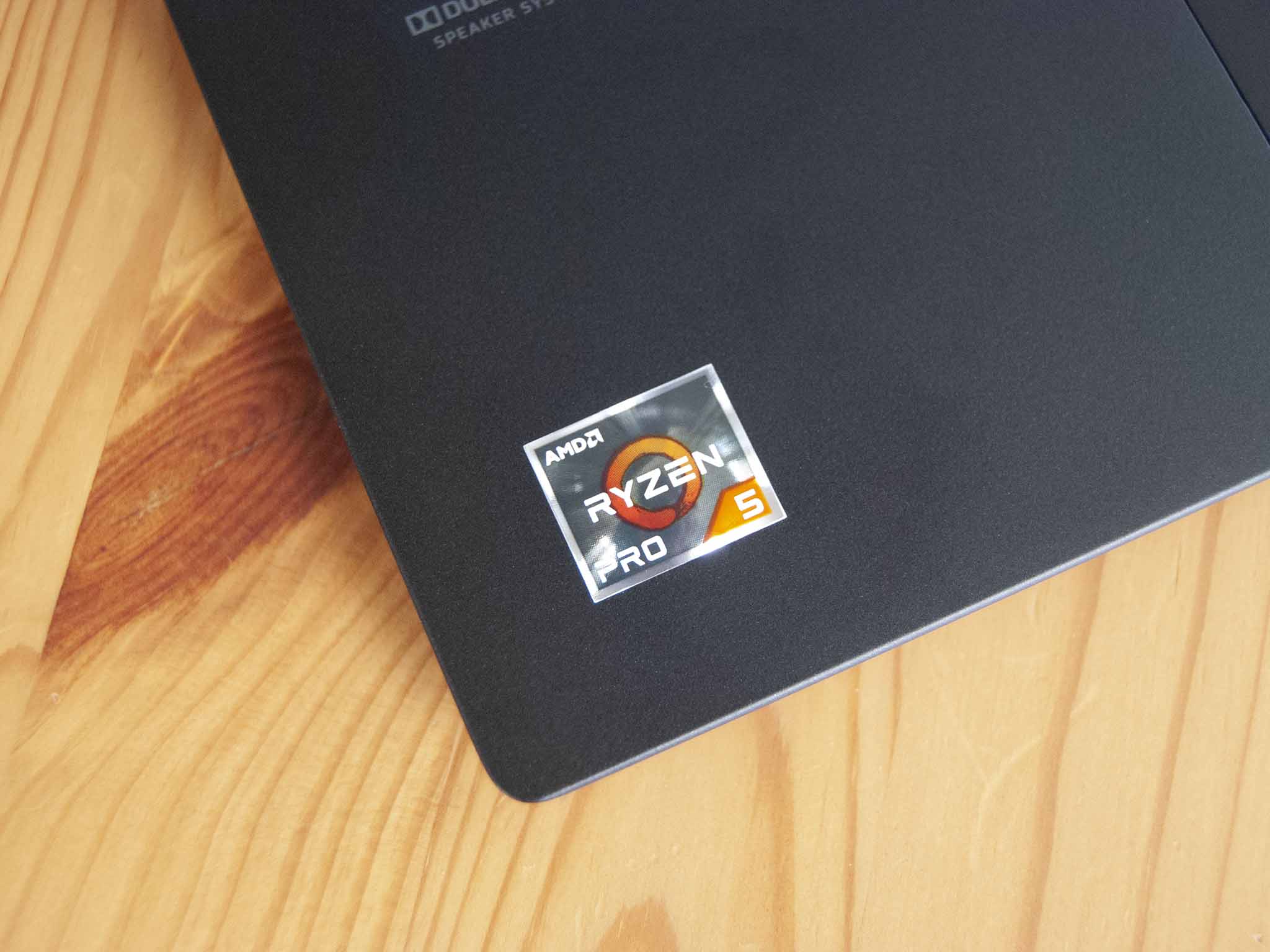
The main reason many people will gravitate towards this laptop is no doubt the inclusion of AMD Ryzen 4000 mobile CPU options. These are the PRO chips, which come with extra security and management perks typical for business laptops. They're essentially AMD's answer to Intel vPro. The Ryzen 5 PRO 4650U in my review unit has six cores, 12 threads, and a boost clock up to 4.0GHz, yet it maintains just a 15W TDP. It's also boasting Radeon Vega 6 integrated graphics, which puts it ahead of similar Intel integrated options.
The X13 was able to cut through everything I threw its way, including Photoshop, word processing, heavy web browsing, messaging, spreadsheets, and video streaming. It's not really meant to be a gaming PC, but you can enjoy some light titles when you're not hard at work, thanks to those Vega integrated graphics. I ran some synthetic benchmarks to see exactly how the Ryzen 5 PRO 4650U system compares to other laptops we've recently reviewed.
Geekbench 5
Geekbench 5.0 (CPU) (Higher is better)
| Device | CPU | Single core | Multi core |
|---|---|---|---|
| Lenovo ThinkPad X13 (AMD) | Ryzen 5 PRO 4650U | 1,102 | 4,780 |
| Lenovo ThinkPad X1 Yoga (Gen 5) | i7-10610U | 1,194 | 4,008 |
| Lenovo ThinkPad T14s (AMD) | Ryzen 7 4750U | 1,135 | 5,782 |
| Lenovo ThinkPad T14s (Intel) | i5-10310U | 1,143 | 3,734 |
| Acer Swift 3 (Intel) | i7-1065G7 | 1,302 | 3,891 |
| Acer Swift 3 (AMD) | Ryzen 7 4700U | 1,131 | 4,860 |
| Acer Spin 3 (SP314-54N) | i5-1035G1 | 1,185 | 3,524 |
| HP ENVY x360 | Ryzen 5 4500U | 1,100 | 4,564 |
| Lenovo IdeaPad Flex 5 14 | Ryzen 5 4500U | 1,087 | 4,570 |
| Surface Laptop 3 15 | Ryzen 5 3580U | 769 | 2,720 |
| Lenovo ThinkPad L13 Yoga | i5-10210U | 1,069 | 3,754 |
| Lenovo Yoga C640 | i3-10110U | 1,015 | 2,111 |
| Lenovo Yoga C740 14 | i5-10210U | 1,094 | 3,767 |
| Samsung Galaxy Book Flex | i7-1065G7 | 1,317 | 4,780 |
| Dell XPS 13 (9300) | i7-1065G7 | 1,284 | 4,848 |
| Surface Laptop 3 15 | i7-1065G7 | 1,336 | 4,893 |
| HP Elite Dragonfly | i7-8665U | 1,125 | 2,942 |
| Surface Laptop 3 13.5 | i5-1035G7 | 1,177 | 4,413 |
| HP Spectre x360 13 | i7-1065G7 | 1,006 | 3,402 |
As usual, comparable Intel mobile chips outperform AMD in single-core scores. But once you get into multi-core, the Ryzen 5 PRO 4650U really shines. I also ran an OpenCL test with Geekbench 5, returning a 10,477 score for the integrated Vega 6 graphics. To compare, Intel UHD graphics in the Core i7-10610U CPU hit a score of just 5,943.
PCMark
PCMark 10
| Device | Score |
|---|---|
| Lenovo ThinkPad X13 (AMD) | 4,849 |
| Lenovo ThinkPad X1 Yoga (Gen 5) | 4,170 |
| Lenovo ThinkPad T14s (AMD) | 4,659 |
| Lenovo ThinkPad T14s (Intel) | 4,214 |
| Acer Swift 3 (Intel) | 4,135 |
| Acer Swift 3 (AMD) | 4,861 |
| Acer Spin 3 (SP314-54N) | 3,674 |
| HP ENVY x360 | 4,755 |
| Lenovo IdeaPad Flex 5 14 | 4,759 |
| Surface Laptop 3 15 (AMD) | 4,006 |
| Lenovo IdeaPad Flex 14 | 3,202 |
| Surface Book 3 15 | 4,393 |
| Lenovo ThinkPad L13 Yoga | 4,899 |
| Lenovo Yoga C640 | 4,008 |
| Lenovo Yoga C740 | 4,941 |
| Samsung Galaxy Book Flex | 3,924 |
| Dell XPS 13 (9300) | 4,524 |
| Surface Laptop 3 15 (Intel) | 4,604 |
| Dell XPS 13 2-in-1 | 4,554 |
| HP Spectre x360 13 | 4,261 |
| HP Elite Dragonfly | 3,716 |
| LG gram 17 | 4,157 |
PCMark 10 does a good job of measuring how well a laptop altogether performs standard productivity work. A great score here, trouncing plenty of Intel Core i7 systems.
Cinebench
Cinebench (R20) (Higher is better)
| Device | CPU | Range |
|---|---|---|
| Lenovo ThinkPad X13 (AMD) | Ryzen 5 PRO 4650U | 2,368 to 2,380 |
| Lenovo ThinkPad X1 Yoga (Gen 5) | i7-10610U | 1,319 to 1,364 |
| Lenovo ThinkPad T14s | Ryzen 7 4750U | 3,064 to 3,070 |
| Lenovo ThinkPad T14s | Core i5-10310U | 1,273 to 1,402 |
| Acer Swift 3 (Intel) | Core i7-1065G7 | 1,229 to 1,236 |
| Acer Swift 3 (AMD) | Ryzen 7 4700U | 2,391 to 2,428 |
| Acer Spin 3 (SP314-54N) | Core i5-1035G1 | 1,329 to 1,479 |
| HP ENVY x360 | Ryzen 5 4500U | 2,053 to 2,100 |
| Lenovo IdeaPad Flex 5 14 | Ryzen 5 4500U | 2,388 to 2,397 |
| Lenovo ThinkPad L13 Yoga | Core i5-10210U | 1,137 to 1,442 |
| Lenovo Yoga C640 | Core i3-10110U | 924 to 929 |
| Lenovo Yoga C740 15 | Core i7-10510U | 1,415 to 1,613 |
| Lenovo Yoga C740 14 | Core i5-10210U | 1,450 to 1,535 |
| LG gram 17 | Core i7-1065G7 | 1,079 to 1,199 |
| Acer Swift 5 (SF514-54T) | Core i7-1065G7 | 1,361 to 1,400 |
| Lenovo ThinkPad P53 | Xeon E-2276M | 2,686 to 2,701 |
Running Cinebench R20 multiple times in a row can show whether or not a laptop will suffer from thermal issues. No issues for the ThinkPad X13, and an excellent score to boot.
SSD
CrystalDiskMark (Higher is better)
| Device | Read | Write |
|---|---|---|
| Lenovo ThinkPad Z13 (AMD) | 3,588.86 MB/s | 2,347.23 MB/s |
| Lenovo ThinkPad X1 Yoga (Gen 5) | 3,567.26 MB/s | 2,984.70 MB/s |
| Lenovo ThinkPad T14s (AMD) | 2,885.92 MB/s | 2,717.17 MB/s |
| Lenovo ThinkPad T14s (Intel) | 3,527.77 MB/s | 2,982.44 MB/s |
| Acer Swift 3 (Intel) | 1,641.39 MB/s | 1,033.82 MB/s |
| Acer Swift 3 (AMD) | 2,161.99 MB/s | 1,214.84 MB/s |
| Acer Spin 3 (SP314-54N) | 1,630 MB/s | 885 MB/s |
| HP ENVY x360 | 1,530 MB/s | 864 MB/s |
| Lenovo IdeaPad Flex 5 14 | 2,199.10 MB/s | 1,017.07 MB/s |
| Lenovo IdeaPad Flex 14 | 3,405 MB/s | 1,512 MB/s |
| Lenovo ThinkPad L13 Yoga | 3,188.82 MB/s | 1,685.61 MB/s |
| Lenovo Yoga C640 | 1,906.78 MB/s | 970.69 MB/s |
| Samsung Galaxy Book Flex | 3,376 MB/s | 2,983 MB/s |
| Dell XPS 13 (9300) | 3,000 MB/s | 1,217 MB/s |
| HP Spectre x360 (Optane) | 2,092 MB/s | 515 MB/s |
| Dell XPS 13 2-in-1 | 2,400 MB/s | 1,228 MB/s |
| HP Elite Dragonfly (Optane) | 2,124 MB/s | 548 MB/s |
| Lenovo Yoga C740 | 3,408 MB/s | 2,982 MB/s |
| LG gram 17 (2020) | 3,477 MB/s | 2,900 MB/s |
The M.2 PCIe NVMe SSD in the X13 is upgradeable after purchase, but the stock option in the review unit was plenty fast.
Battery life is generally applauded in AMD systems. I ran PCMark 10's Modern Office battery rundown test with screen brightness at 50% to see exactly how well the 48Wh battery stands up. I got back 8 hours and 10 minutes, which is not bad but not ideal. Real usage knocks that number down closer to about seven hours, meaning you're going to need to bring a charging adapter with you when heading to the office.
Starts at a low price
Should you buy the ThinkPad X13?
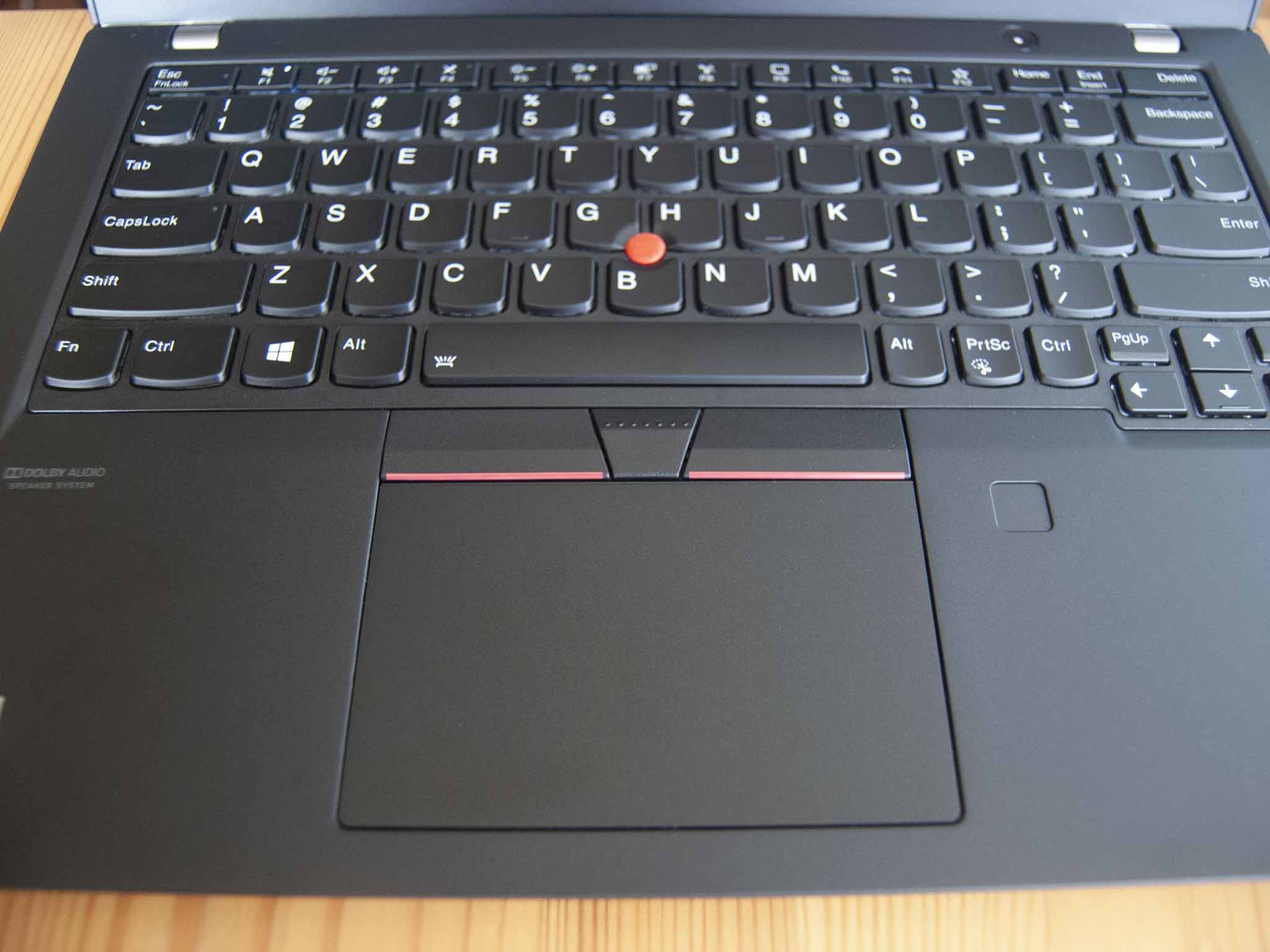
Who it's for
- Anyone who needs a compact 13-inch business laptop
- Anyone who doesn't need a dedicated GPU
- Anyone who wants a comfortable keyboard and lots of ports
- Anyone who wants strong AMD performance
Who it isn't for
- Anyone who needs a dedicated GPU
- Anyone who wants a high-res display
- Anyone who needs something larger than 13 inches
- Anyone who needs all-day battery life
The ThinkPad X13 is a new option added to the X-series line for 2020. Its first generation isn't exactly anything out of the ordinary. You get ThinkPad durability, a familiar design, and plenty of configuration options ranging from very low-end to rather high-end (save for the display). And those bulk enterprise purchases are no doubt where the ThinkPad X13 will shine. Baseline models are quite inexpensive, but you can also go with something above $1,000 if you really like the 13-inch form factor for a personal device. But once you break four figures, switching over to something like the 14-inch X1 Carbon, starting at about $1,000, might be too tempting.
However, the addition of AMD 4000 PRO processor options is really the selling point for the ThinkPad X13. If you value raw processing power and stellar integrated graphics — all at a more affordable price compared to Intel alternatives — there is no doubt something to love about this laptop. Yes, the X13 is available with Intel hardware, but the extra performance and better price from AMD really make it hard to side with Team Blue. If the ThinkPad X13 isn't really what you're looking for, have a look at our roundup of the overall best Windows laptop options available now.

Cale Hunt brings to Windows Central more than eight years of experience writing about laptops, PCs, accessories, games, and beyond. If it runs Windows or in some way complements the hardware, there’s a good chance he knows about it, has written about it, or is already busy testing it.
